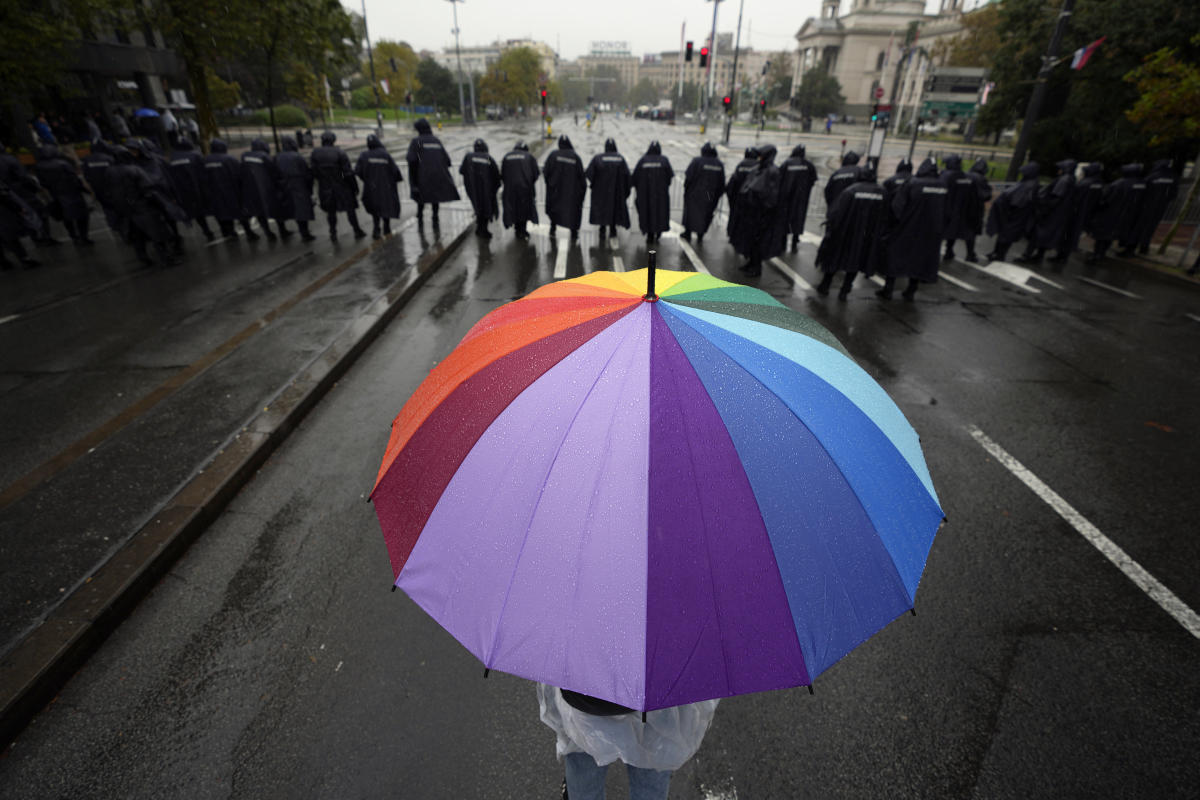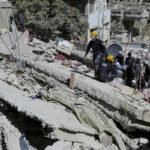
BELGRADE, Serbia (AP) — Amid mounting tensions, riot police were deployed Saturday in downtown Belgrade where a Pride march was expected to be held despite threats from anti-gay groups and an official earlier ban.
Raising hopes that the pan-European LGBTQ event would pass without violence, organizers said they received guarantees from Serbian Prime Minister Ana Brnabic, who is a lesbian, that the event could go ahead as planned.
“Following weeks of intense international pressure, the Serbian Prime Minister Ana Brnabic has announced that the EuroPride March, scheduled for 1700 CET (11 a.m. EDT) today, can go ahead,” said a statement from the European Pride Organizers Association.
“The prime minister said she can guarantee that the streets of Belgrade will be safe this afternoon,” the statement said.
Brnabic said she was proud that during “this entire week, with more then 130 (LGBTQ) events, there wasn’t a one single incident. And that really is the right image of Belgrade and Serbia.”
However, several small incidents were reported Saturday with anti-gay activists hurling bottles at police officers who tried to isolate them in downtown Belgrade. Police said 31 people were detained for causing trouble.
Citing the worries that police gave earlier to support a parade ban, the Serbian interior minister warned said “there will be no illegal walks.”
“The Ministry of Internal Affairs once again warns everyone that it will not tolerate any violence on the streets of Belgrade and that it will strictly implement the law and the decisions of competent authorities and courts,” Interior Minister Aleksandar Vulin said.
Serbian police this week banned the parade, citing the risk of clashes with the far-right activists who started gathering Saturday near the downtown Parliament building to protest the LGBTQ event.
Members of the European Pride Organizers Association chose Serbia’s capital three years ago to host the annual event, hoping it would represent a major breakthrough for a Slavic country that is traditionally conservative and strongly influenced by the Orthodox Church.
EU and other Western officials, as well as domestic and international rights groups, have urged populist Serbian President Aleksandar Vucic to allow the holding of the Pride march. But he has said that police can’t cope with possible riots by right-wing groups amid the energy crisis and other events that have hit the Balkan country.
Those right-wing groups, some of them considered close to Vucic’s nationalist government, were also banned from gathering on Saturday, but they said they will ignore the ruling.
Several legal appeals by march organizers against the ban have been rejected by Serbian authorities. On Friday, organizers submitted another formal request to Serbia’s interior ministry with a proposed shorter route for the walk.
___
AP writer Jovana Gec contributed to this story.




